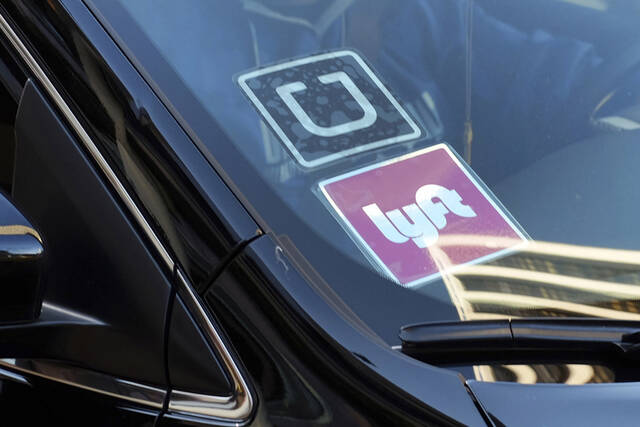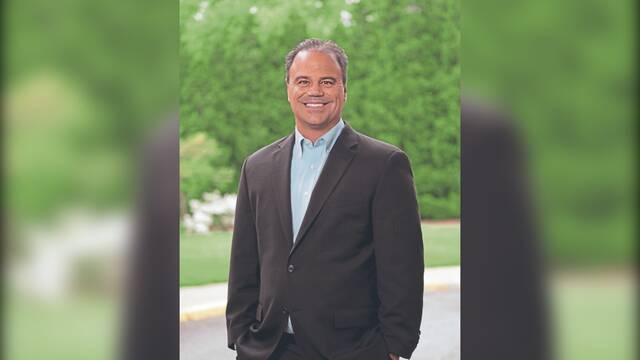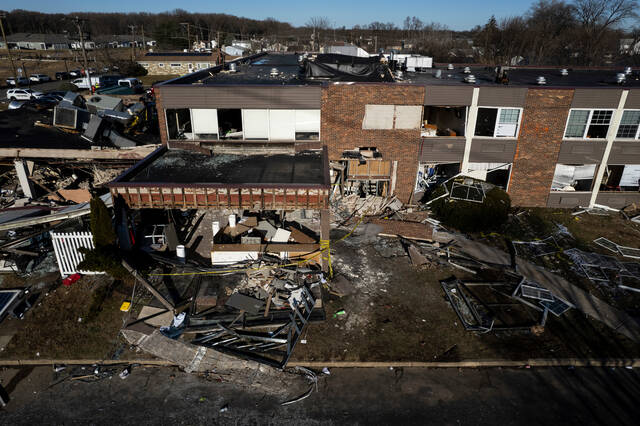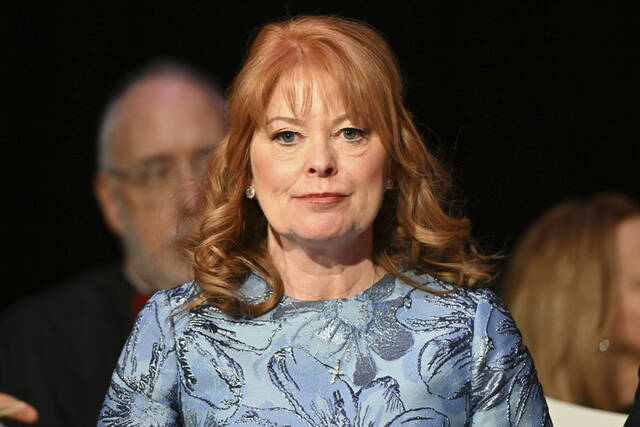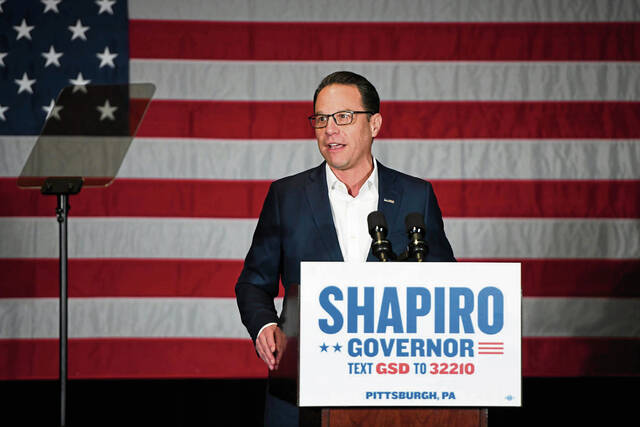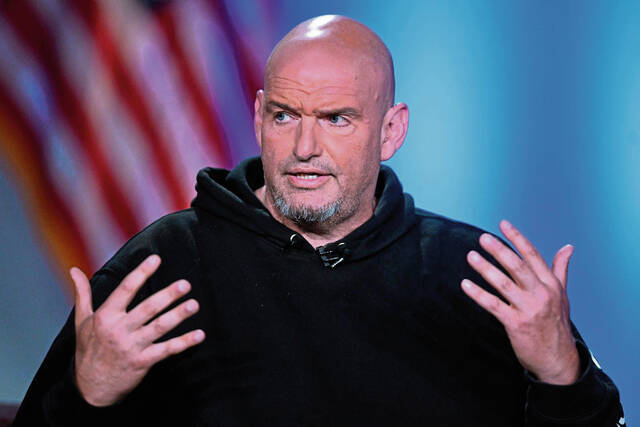A bill in the state Senate would guarantee app-based service workers a limited set of benefits, but labor advocates say drivers would ultimately lose out amid an ongoing legal battle over how those workers are classified.
The bill would require network companies that employ drivers and couriers through phone-based applications — such as Uber and DoorDash — to make contributions to a “portable benefits account” controlled by the driver.
The contribution is to equal 4% of a driver’s gross pay, and the account can be used to cover parental leave, retirement savings, health insurance, and other expenses for which the companies typically don’t provide benefits.
But the bill’s text also says such app-based workers are “independent contractors” under Pennsylvania labor laws — something that could have major negative consequences for labor groups that have been fighting to have such workers classified as proper employees with full safety-net benefits.
“It’s basically a Trojan Horse,” said Sally Dworak-Fisher, an attorney with the National Employment Law Project (NELP). “Laws like the one now in the Pennsylvania Senate “purport to provide new benefits by locking [workers] into independent contractor status.”
The bill cleared the Senate Banking and Insurance committee on a near-party line vote last month, with all Democrats against the measure along with Sen. Devlin Robinson, R-Allegheny, a Republican, who is facing re-election in a closely-watched swing district.
Classifying app-based workers as contractors carte blanche is “effectively denying them full rights and protections which come with employee status,” said Sen. Sharif Street, D-Philadelphia, the committee’s ranking Democrat.
“By cementing their status as independent contractors, the bill undermines workers’ ability to secure fair wages, safe working conditions, and to have voice in their workplace,” Street continued, and would specifically complicate union organizing efforts.
The Pennsylvania bill appears to be part of a trend among app companies pushing lawmakers to introduce such legislation, Dworak-Fisher said. A bill currently in the Massachusetts statehouse is very similar — in some cases verbatim — to the Pennsylvania one.
The bill was introduced by Sen. Ryan Aument, R-Lancaster County. Aument’s office did not respond to a request for comment on the criticisms of the legislation.
For years, labor advocates like the NELP have challenged app-based companies’ assertion that their drivers are independent contractors, arguing instead that they meet the threshold of being full-fledged employees covered by state unemployment and workers’ compensation and potentially be eligible for employer-sponsored healthcare and other benefits.
Companies like Uber have argued that drivers are contractors because they aren’t required to accept any specific fare, and many prefer the flexibility of working gig-to-gig.
Labor groups, on the other hand, point out that drivers don’t have the ability to negotiate their own rates — pricing is set by an algorithm in the app — and are subject to direct oversight such as GPS tracking and de-listing if they don’t maintain a certain customer rating.
The most recent development on the issue in Pennsylvania was a 2020 state supreme court ruling in Lowman v. Unemployment Compensation Board of Review. The plaintiff in the case had lost his job with a human services company, and filed for unemployment compensation. While looking for a new full-time job, he began driving for Uber.
The state’s unemployment review board then denied his unemployment pay. Pennsylvania law specifies that workers can still receive partial benefits if they find a job with lower pay or fewer hours than their old one — but they cannot receive any benefits if they engage in “self-employment,” and the board found that driving for Uber qualified as such.
The Supreme Court, however, found that the board had made an error. Although there is no statutory definition of “self-employment,” there are legal factors that can be weighed based on prior precedent, and driving for Uber did not meet the test.
“Vetting, monitoring and supervising the provision of services by its drivers is implicit in Uber’s services,” the court wrote. “Giving weight to all of the evidence, we conclude that Uber controlled and directed the performance of Lowman’s services as a driver-for-hire.”
Moreover, “the fact that Uber’s business model does not require regularly scheduled work hours from its workforce does not translate into an automatic independent contractor relationship,” the court concluded.
The court ruled only that the plaintiff’s work for Uber did not constitute self-employment that would disqualify him from unemployment benefits under that specific subsection of the law, and declined to directly weigh in as to whether he would be treated as an employee of Uber otherwise.
But many legal advocates believe the supreme court’s reasoning in Lowman means that it would likely rule app-based companies like Uber to be a bona fide employer in other respects, were such a case to be brought.
This could compel the companies to begin paying into the state’s unemployment and workers’ comp funds, be subject to minimum wage and overtime rules, and other provisions. It would also facilitate employees unionizing, Dworak-Fisher said.
Bills such as the one in the Senate would perform an end-run around this possibility by preemptively declaring such workers to be independent contractors. Although it may seem benevolent, the average cost for complete benefits is an extra 31% of salary and wages, Dworak-Fisher pointed out; the offer of a 4% pay-in is “second-tier compensation.”
“It’s really quite the two-step that they’re doing here, purporting to do something beneficent by giving four percent,” Dworak-Fisher said, while also preventing the courts from granting workers more robust benefits.
Although disclosures vary by company, the industry is known to have grown rapidly during the COVID-19 pandemic; Uber said that it had over 5 million drivers globally in mid-2022, a 31% year-over-year increase.
App-based driver companies also acknowledge that worker classification would have a major impact on their bottom line.
Uber’s investment disclosures note that, were drivers to be classified by a court or legislature as employees, “we would incur significant additional expenses for compensating drivers,” including minimum wage, overtime, social security contributions.
The company also disclosed that over 150,000 drivers in the U.S. who have entered into arbitration agreements with Uber have made or intend to make misclassification claims.


